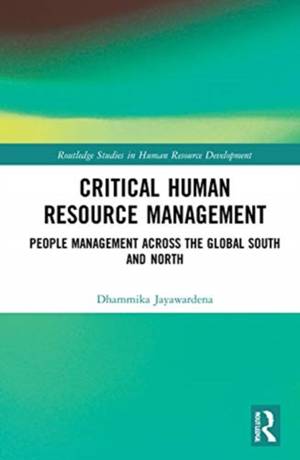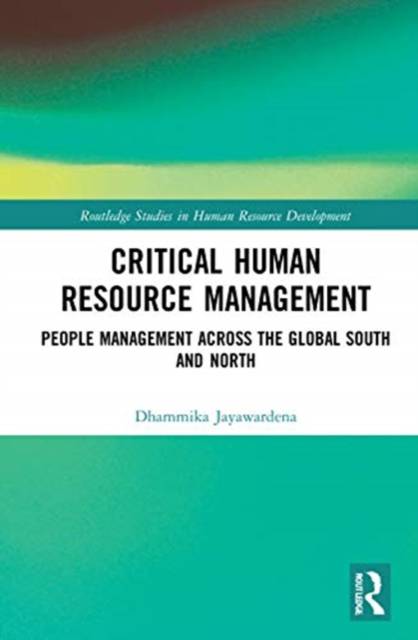
- Retrait gratuit dans votre magasin Club
- 7.000.000 titres dans notre catalogue
- Payer en toute sécurité
- Toujours un magasin près de chez vous
- Retrait gratuit dans votre magasin Club
- 7.000.0000 titres dans notre catalogue
- Payer en toute sécurité
- Toujours un magasin près de chez vous
Critical Human Resource Management
People Management Across the Global South and North
Dhammika JayawardenaDescription
Human resource management (HRM) is the predominant apparatus for people management across the world. Since its inception, HRM has nevertheless been subjected to critical scrutiny. This work has produced a corpus of literature now referred to as 'Critical HRM'.
This book on Critical HRM traces the development of the critical scholarly tradition in people management. It analyzes, organizes and synthesizes the various perspectives, ideas and arguments that constitute this critical tradition. The book identifies the current status and future trends of Critical HRM, and explores its ethico-political role in contemporary organizations, especially in the context of widespread public concern about making business more ethical. Incorporating under-researched and emerging issues of people management, such as the Global South and Critical HRM, with more established themes of Critical HRM, this book introduces Critical HRM's critique of mainstream HRM and its underpinning assumptions. It illustrates how interventions have the potential to transform organizational policies and practices of managing people at work.
The book will be of interest to professionals, researchers, and academics focusing on critical issues in people management across the Global South and North.
Spécifications
Parties prenantes
- Auteur(s) :
- Editeur:
Contenu
- Nombre de pages :
- 168
- Langue:
- Anglais
- Collection :
Caractéristiques
- EAN:
- 9780367608965
- Date de parution :
- 04-06-21
- Format:
- Livre relié
- Format numérique:
- Genaaid
- Dimensions :
- 152 mm x 229 mm
- Poids :
- 381 g

Les avis
Nous publions uniquement les avis qui respectent les conditions requises. Consultez nos conditions pour les avis.






